When Azealia Banks joined the Israel Daily News for an interview, she picked up on host Shanna Fuld’s New York energy immediately. “You’re a New Yorker, right?” she asked, within seconds of the call beginning. She wasn’t wrong. Banks grew up in West Harlem and Fuld in south Queens.
Banks has never been shy about her views. Known for her outspoken presence on stage and online, Banks says her most recent stance has cost her more than money — it has cut her off from an entire touring circuit. “I lost like a good 350,000 pounds worth of touring this summer for not saying free Palestine,” she told the Israel Daily News. The number, she said, reflects canceled shows across the United Kingdom and European Union, including festival appearances in Amsterdam, Scotland, and Newcastle, UK.
“A Culture Shock” in Europe
Banks moved closer to her team and producers in Europe this year, hoping for smoother logistics and better production. Instead, she said, she found herself facing something she hadn’t expected: overt antisemitism. “It was really a culture shock coming to the EU and coming to the UK and just seeing how much of a, like, just seeing how big antisemitism is outside of New York City, it was just kinda like, whoa,” Banks said.
Having grown up in New York, where Jewish and Black communities have long shared space, she was shocked to see antisemitism flourish so openly. Banks reflected on how most of her upbringing was around Catholics and Jews with her mother’s job at a Jewish-owned business in Harlem making an impact on her understanding of other cultures. In New York, Jewishness was neither exoticized nor demonized — it was simply part of the city’s fabric. She recalled seeing Hasidic men throughout the streets of New York.
Fast forward to a tense time globally, and Banks described European festivals that turned into political recruitment drives.
“They’re having these like Palestine action recruitment drives at the festivals. Like, what the fuck is that?” she said. Banks insisted she never signed up for political pledges when she agreed to perform. She expected to give over her music. Instead, she found herself under pressure to chant slogans she doesn’t agree with before taking the stage.
”This Palestinian lobby is now trying to deprive a black woman of her right to fucking work – an American black woman of her right to work after they’ve used my name to advertise these shows, and then they want to throw me out?” Banks said. “ I’m the fucking baby in the bath water!”
Drawing a Line
“You don’t tell a black woman from New York City what to do. You just don’t fucking do it,” she said. The refusal to comply came at a high cost: she lost not just bookings, but also professional relationships.
Still, she remains unapologetic.
When asked what the turning point was for her when doubling down on her Israel advocacy, Banks says it was “honestly just a bunch of bull shit.”
“I’m not a fake person. I’m not gonna just obligatorily like, jump in and dump on Jews because this is like the cool thing to do now or whatever,” Banks said.
“When you book Azealia Banks, you know what you’re getting. You know… that I come with a bunch of shit. So I booked these festivals, I’m headlining these festivals, you know, the festival tickets are sold out and then all of a sudden some like group called Ravers for Palestine start like, you know, boycotting me, blacklisting me, and I’m getting all this pressure from the promoters to say free Palestine and I’m just like, what the fuck is going on?”
Banks said that’s the point at which she had to step back.
“This is a problem when you like …start capitulating to the woke mob. It’s always one thing after another,” she explained. “And once you capitulate, you have to capitulate to the next thing and the next thing….”
Banks says she’s happy to come to Israel and just be with her people.
Turning Toward Tel Aviv
With doors closing in Europe, Banks decided to come to Israel — a choice she says is about both freedom and creativity. “I have to come to Tel Aviv to get some work done because things are so tense in the UK,” she told me.
In Tel Aviv, she explained, she feels she can focus on music without second-guessing every word or being forced into slogans. “I just wanna have a good time… I’m going to take my freedom back from people and their opinions.”
She has plans to perform two shows in Israel with an emphasis on recording.
Zionism and Hip Hop
At one point in our conversation, Banks drew a striking comparison. “Zionism is to Jews what hip hop is to black America,” she said. Both, in her view, were born from visions of survival and self-determination — movements that created new cultural and political realities for communities often excluded from mainstream power.
“There’s something very magical about Zionism,” she said. “Jabotinsky and Herzl and stuff, you know, these are all armchair visionaries who really just had like a desire in their soul to imagine this world where the Jewish children can just play and be happy, you know? And that’s kind of what, that’s exactly what hip hop was.”
Banks said Hip Hop is a space where black people can feel safe and feel loved, and feel confident and suggested that both movements have outgrown their origin.
“Zionism has outgrown…it’s outgrown Judaism. And that that’s something to be really fucking proud of,” she said.
In Israel Starting October 3rd:
During her stay, which will last several weeks, Banks plans to tour across Israel, from Tel Aviv to the Dead Sea to Jerusalem and beyond. She plans to meet politicians, high profile artists, visit Yad Vashem and will visit the Jabotinsky Institute, the museum dedicated to Ze’ev Jabotinsky.
About Ms. Banks:
Azealia Banks is a New York–born rapper, singer, songwriter, and actress. She broke into global recognition with her viral hit “212” in 2011, which became a worldwide anthem and launched her international career. Her debut album “Broke with Expensive Taste” (2014) was praised for its genre-blending sound, mixing hip hop, house, electronic, and R&B.
Her artistry has been described as bold, experimental, and innovative — seamlessly blending underground club sounds with mainstream hip hop sensibilities.
Banks has also been outspoken in her defense of Israel and the Jewish people. She has called herself an ardent Zionist, rejecting antisemitism in the entertainment industry and affirming her solidarity with Israel’s right to exist and defend itself.
Banks last came to Israel in 2018 but said her bad experience was tainted by having a negative Turkish security guard.
Her upcoming visit reflects her belief that Israel is not only a center of history and resilience, but also a hub of creativity and innovation where she sees potential for new cross-cultural projects.
This week, we’ll be releasing a podcast episode with Azealia Banks so you can hear the full conversation for yourself. 🎧 Click here to listen on Spotify.

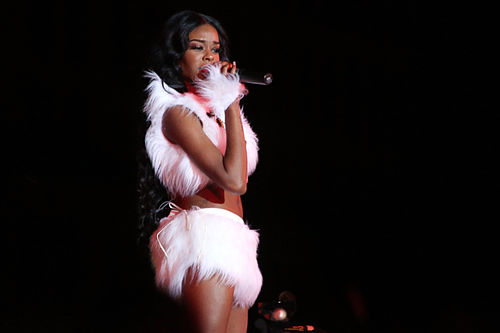
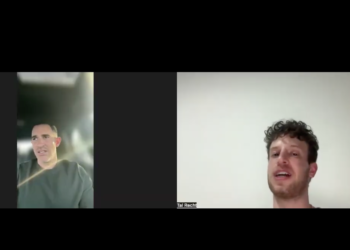
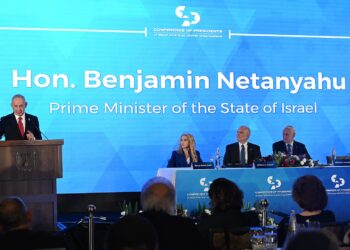


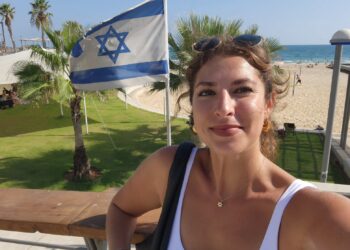
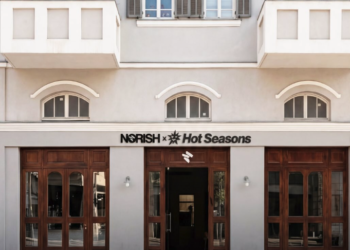















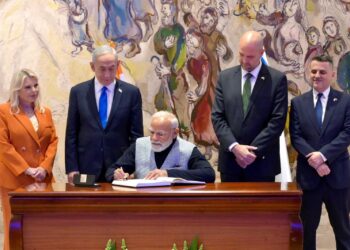

Discussion about this post